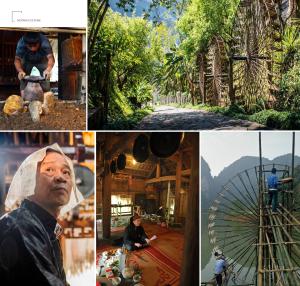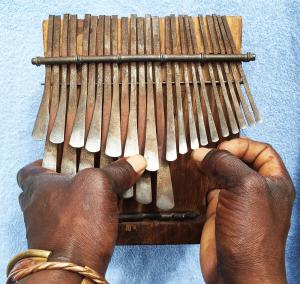"Arirang" is one of the best-known traditional folk songs of South Korea, representing a symbolic and cultural hallmark of the country. The song holds deep historical and emotional significance for the Korean people. "Arirang" is used musically to express themes of longing, separation, pain, and hope, resonating with Koreans as an embodiment of their homeland and collective sentiments.
The song has also been employed during Korea's independence movement and, post the Korean War, as a symbol of hope for reunification. Consequently, "Arirang" plays a vital role in providing emotional solace and fostering a sense of unity while evoking profound emotions about their homeland and history. Koreans use this song to share their feelings about their homeland, family, love, and aspirations.
Furthermore, "Arirang" is considered a significant representation of Korean culture. The song serves to preserve and propagate traditional music and folklore, playing a crucial role in strengthening Korea's cultural identity and introducing its traditional music and arts to the international community. Because of these reasons, "Arirang" holds an indispensable position in the conservation and advancement of Korean culture.
10-20-2023
| Institutional and human capacities | Arirang, a symbol of Korea, is considered a national heritage without specific individual holders. There are professionals and institutions dedicated to preserving and educating about its history and traditional forms. Two notable museums, the ‘MunKyeong Saejae Arirang Si-jo Museum’ in Munkeong city and the Arirang Museum in Jeong-seon, Kangwon-do, house multiple versions of Arirang, along with comprehensive resources and conduct educational activities and cultural events to promote its significance. | |
| Transmission and education | Arirang, a traditional Korean folk music, holds significant cultural importance in Korea, being taught in schools and widely known among the populace. Several movies based on Arirang, the earliest dating back to 1926, not only promote the song but also depict its symbolic meaning in Korean society. Although the first Arirang-themed film is no longer fully accessible, remnants of it are preserved through a 1987 TV broadcast, while Arirang continues to feature prominently in Korean musicals, sometimes serving as the central thematic element. | |
| Inventorying and research | Arirang, a term with multiple interpretations, symbolizes the nature of Korean people embracing self-awareness, and failing to do so may lead to illness. Designated as an Intangible Cultural Heritage by UNESCO in 2012, Arirang has been extensively researched, particularly its historical context during Korea's colonial period, although its exact origin remains elusive due to its adaptable nature reflecting changes in dynasty, ideology, and national belief. The focus of contemporary studies is on the diverse applications of Arirang both within and outside Korea, with notable events like the 1926 film "Arirang" contributing to its status as a revered national folk music, despite the unavailability of the complete movie today. | |
| Policies as well as legal and administrative measures | The Korean government had enacted the Cultural Property Protection Law in 1962, under which Arirang is protected. However, there are no specific policy that is directly associated with the Korean traditional folk song, Arirang. | |
| Role of intangible cultural heritage and its safeguarding in society | Arirang, a widely recognized Korean folk song often regarded as the second national anthem, holds a unique place in Korean culture. Unlike the intricate craft of Hanji, Arirang is transmitted through schools and families, deeply ingrained in the collective consciousness. Originally associated with the traditional harvest dance 'Ganggang Swal-lae', Arirang's adaptable nature has allowed it to evolve into a symbol of Korean heritage, serving various purposes through different periods of Korean history, including as a unifying anthem during times of adversity such as the Japanese colonial era, liberation day, and the Korean War. | |
| Awareness raising | Arirang, a significant Korean traditional folk song, has transcended its musical origins to become a widely used name for various entities such as Arirang Studies, Arirang News, Arirang TV/Radio, and even Arirang Wedding (International). This nomenclature is primarily employed in international contexts to increase global awareness of the Korean folk song. Despite its popularity within Korea, the government and companies focus on promoting Arirang internationally, exemplified by the Booyoung Group's initiative of distributing digital pianos with Arirang and other Korean songs to schools in Bangkok. Notably, Arirang was officially recognized as the national traditional folk music of Korea in 1986, with 97% of Korean citizens voting for it in a survey conducted by Brand Major. | |
| Engagement of communities, groups and individuals as well as other stakeholders | Arirang, a widely celebrated traditional Korean folk song, is often sung at festivals and significant gatherings, fostering a sense of communal unity. Its various regional versions and dialects reflect the diverse origins of its singers, yet it remains ingrained in the fabric of Korean culture, taught to all from a tender age. While typically performed by those well-versed in traditional Korean folk music, its accessibility transcends formal training, allowing it to be embraced by all members of Korean society. The Jeongseon Arirang Cultural Center plays a significant role in promoting and preserving the cultural heritage of Arirang, hosting diverse activities such as music performances, exhibitions, festivals, and educational programs. Arirang Institute focuses on non-political public education, organizing seminars and cultural events, providing a platform for discussing cultural, economic, and security issues related to North and South Korea. The Arirang Association, founded in the 1980s and led by Professor Kim Yeon-gap, is dedicated to safeguarding and popularizing the traditional Korean folk song Arirang, with branches in various locations within South Korea and globally, including Russia. | |
| International engagement | Arirang, a prominent Korean folk song, gained international recognition when foreign musicians like Stephen Hough performed it during concerts in Korea in 2021. Additionally, Arirang was used as a symbol of protest in Japan against the Abe government, and it was sung by both Japanese and Korean individuals during demonstrations. Moreover, the engagement of Arirang extended to Thailand, where a Korean company provided digital pianos with Arirang recorded in them, leading to a Korean-style graduation ceremony at a Bangkok elementary school. Arirang has also served as a unifying element, with the Pyeongyang Arirang Artists Association promoting cultural unity between North and South Korea through their artistic endeavors. | |
| References |
|
|

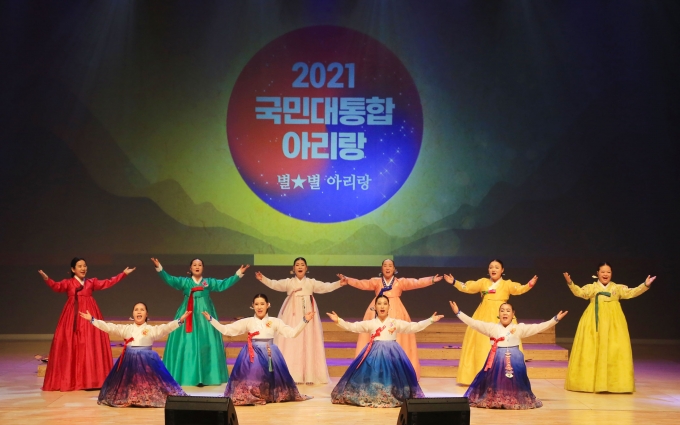
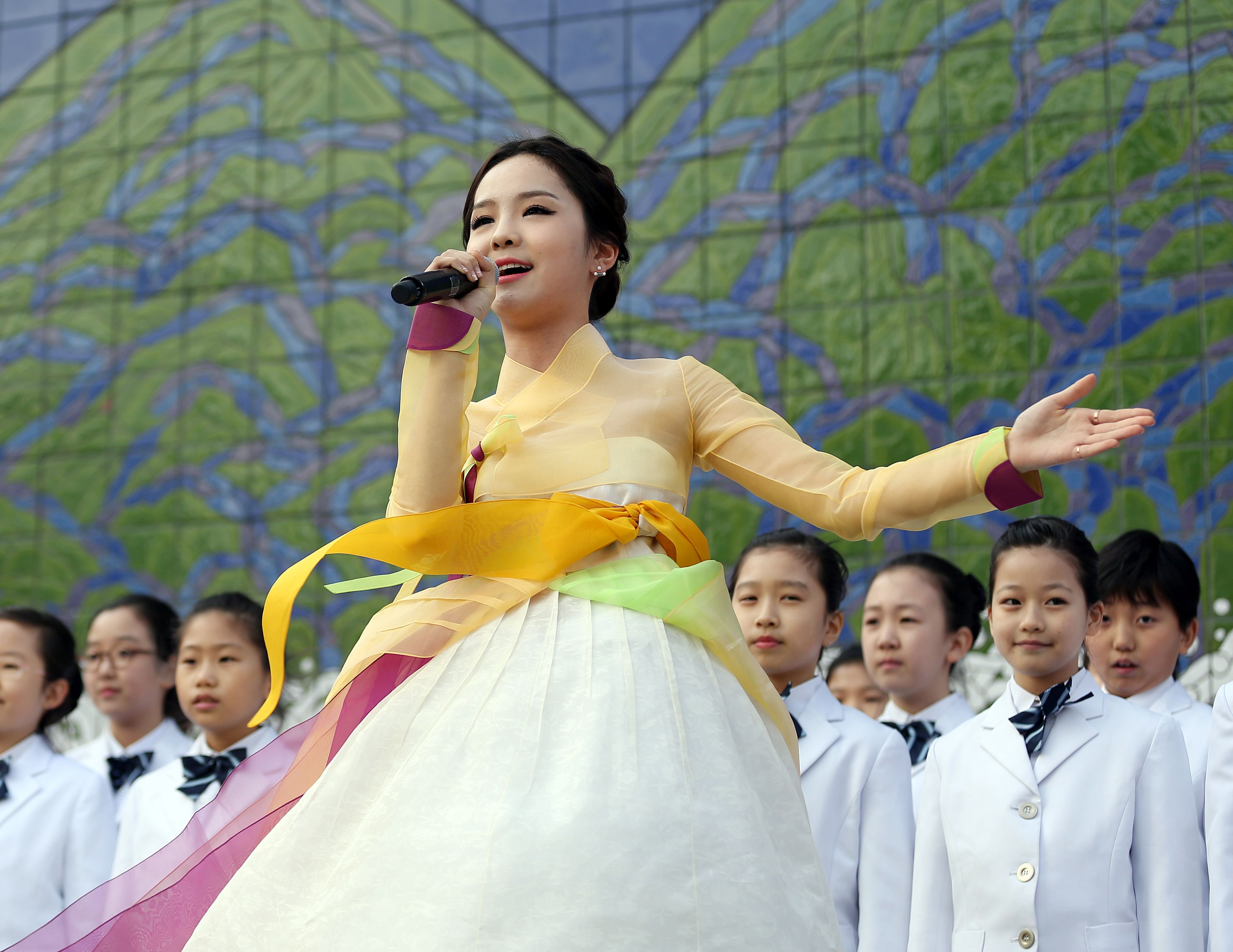
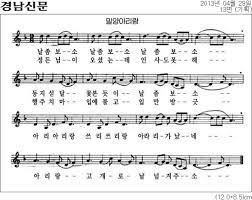
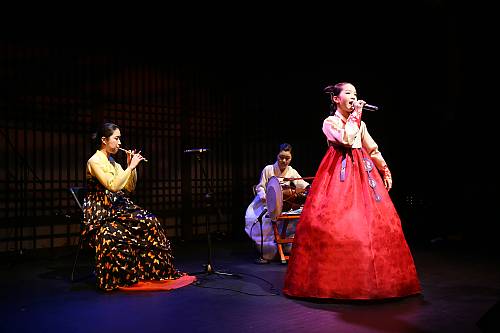

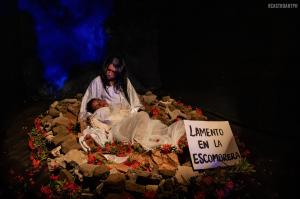
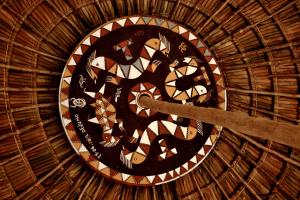

.jpeg)
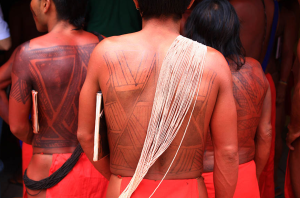
.jpg)
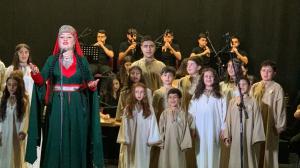
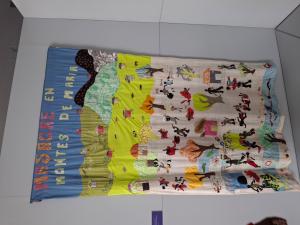

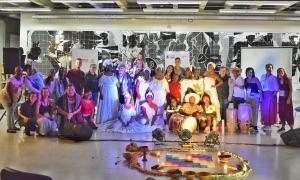
.png)
.jpg)















_(31711258567).jpg)

















